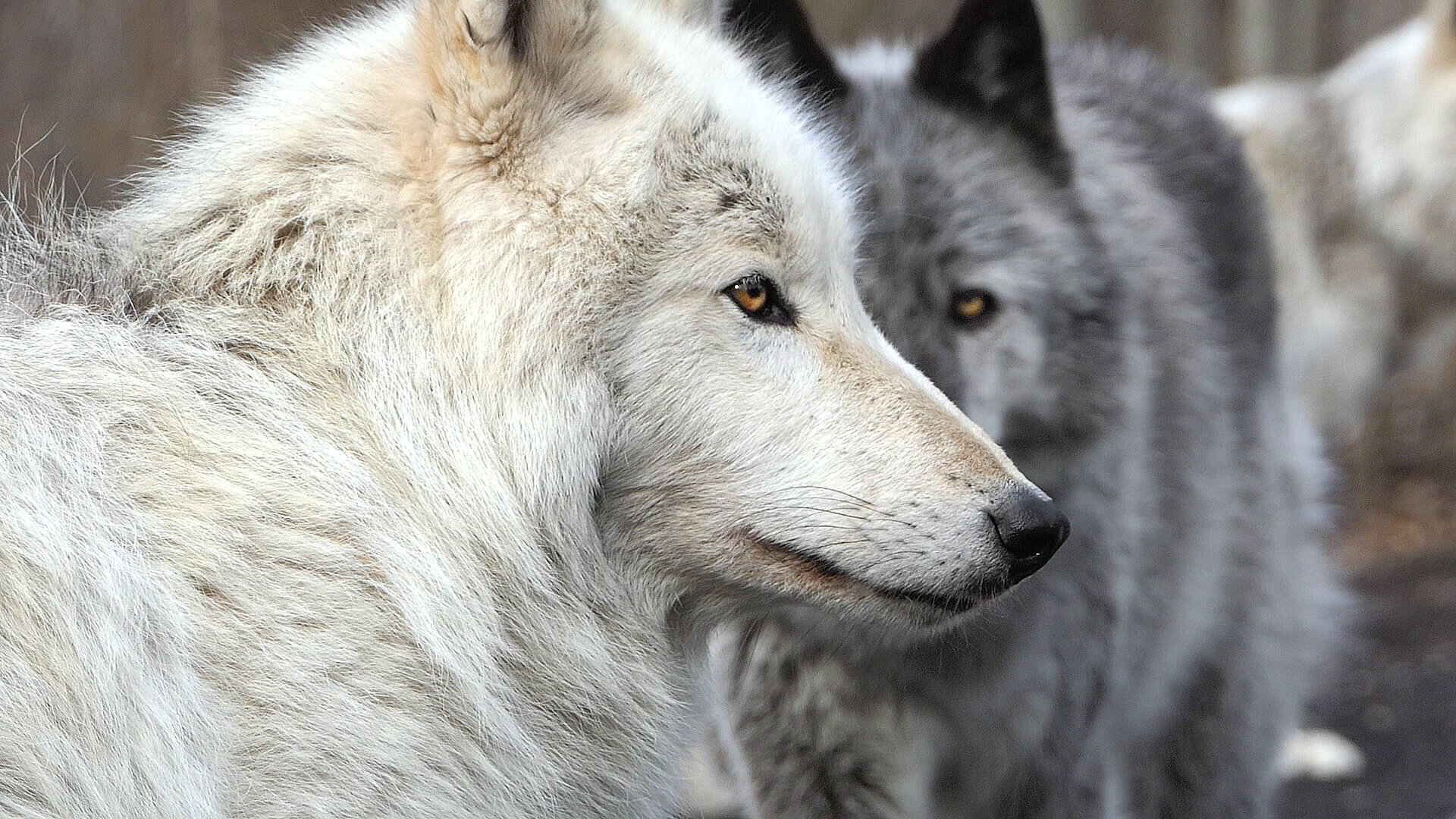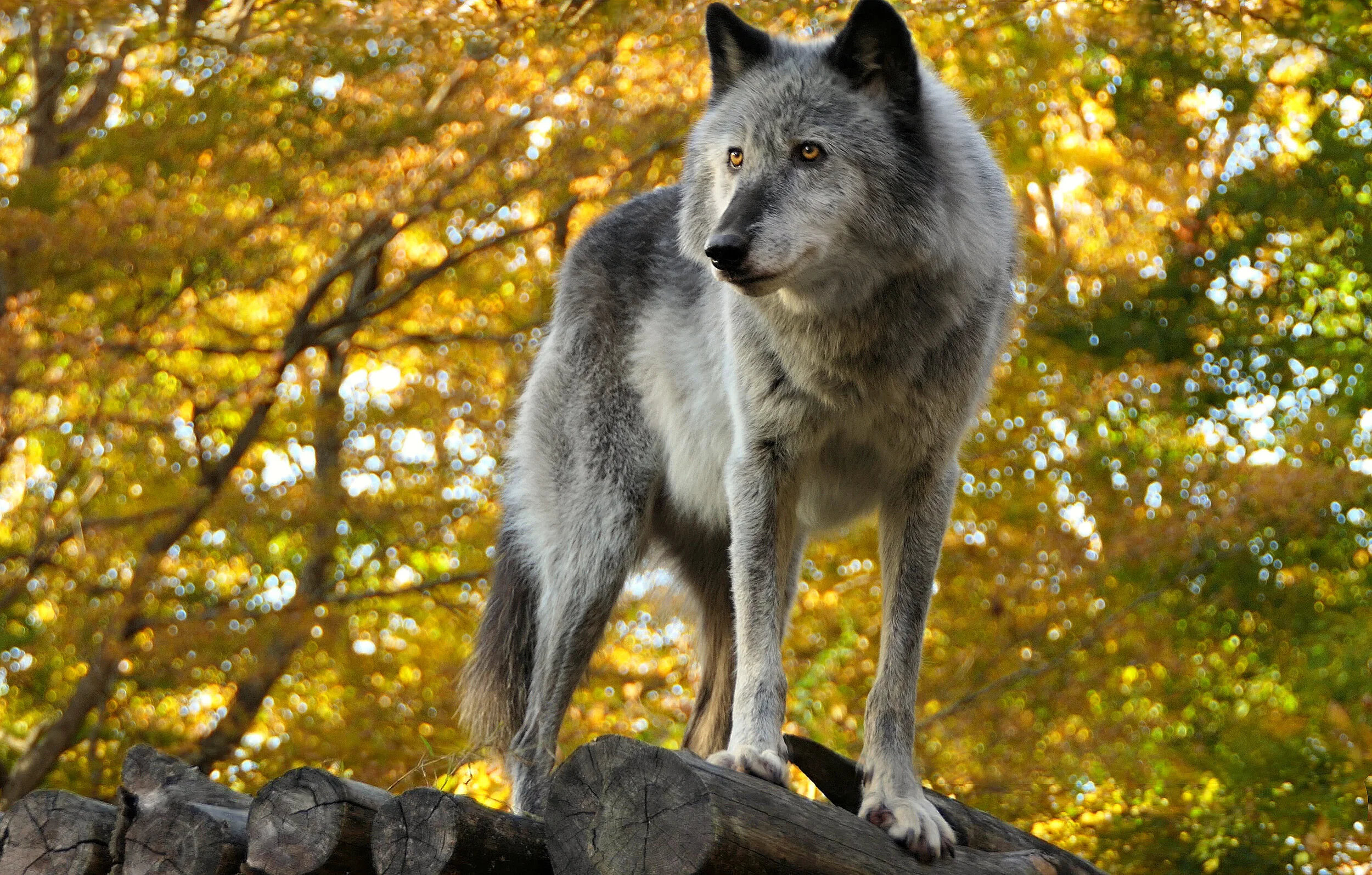The Wolf Conservation Center: protecting the future
“The wolf is neither man’s competitor nor his enemy. He is a fellow creature with whom the earth must be shared. ”
Beautiful and cunning, loyal and social, territorial and fierce; wolves inspire fascination and fear in equal measure. Executive Director of the Wolf Conservation Center Maggie Howell explains the importance of protecting this critically endangered species through education and awareness.
The subject of myths and fables, the wolf has a long history of association with humans, with distinctly mixed results; despised and persecuted in some quarters, they were highly respected and revered in others.
Once upon a time, these perfectly adapted predators could be found in a wide variety of ecosystems. But their wild habitat and prey began disappearing, along with humans’ tolerance for their presence. An active policy of extermination over the last century in many regions led to a sharp decline in their numbers until protective measures were put in place and conservationists leapt into the breach.






Founded in New York in 1999 by Hélène Grimaud (accomplished pianist, committed wildlife conservationist, compassionate human rights activist and writer), the Wolf Conservation Center (WCC) is an environmental education organisation working to protect and preserve wolves in North America. The WCC operates through science-based education, advocacy, and participation in recovery and release programmes for two critically endangered wolf species: the Mexican gray wolf and red wolf.
With preservation of these wolves literally a matter of life and death, how does the WCC convey their vital message? ALHAUS spoke with Maggie Howell, WCC’s Executive Director—and she told us about all the ways in which the WCC engages with their community.
“Each year, 15,000–20,000 people attend our education programmes and they’re learning just how important wolves are. Our education and Ambassador wolf programmes introduce the community to the importance of a healthy planet and healthy ecosystems.
In addition to welcoming people to the WCC, our educators extend education programming offsite as well—about wolves and so much more!
Here in our community, we are fortunate to have an enormous diversity of wildlife sharing the landscape with us. However, as human populations continue to encroach into natural habitats, contact between humans and wildlife is on the rise and sometimes conflicts can occur. Although there are no wolves in New York, the WCC is dedicated to promoting positive attitudes of tolerance in the community towards local wildlife such as coyotes, bobcats, bears, and more.
We’re able to engage with a vast number of learners and supporters through our robust social media effort, it’s been a very effective way for us to get the word out. Consistent, professional effort has resulted in over 4.6 million people following our work on Facebook where they learn about wolves; fall in love with them; and discover ways they can help save wolves locally and across North America, communicate effectively with their elected representatives, and encourage personal responsibility for improved human stewardship of our world. The WCC also uses Twitter, Instagram and YouTube.
Live webcams are one of our most effective tools—they have been wildly popular all around the world! Unbeknownst to the 50 wolves who call the center home, the WCC uses webcams to observe food and water intake, monitor breeding behaviour, and assess the physical well-being of each wolf. The cameras also allow WCC staff to study family dynamics and thus make the best recommendations with respect to which wolves are most suitable for release. Moreover, the cameras give an unlimited number of viewers an opportunity to learn about these critically endangered wolf species and the WCC's efforts to recover them.
“Over 300,000 people tuned in to the webcam that day, and breathed a collective sigh of relief upon hearing the unmistakable wolf pup whines.”
In June 2016, one of our critically endangered Mexican gray wolves gave birth to a litter of three pups. The newborns announced their arrival with distinct peeps, squeaks and mews broadcast to a global audience of well-wishers via the Center’s webcams. Over 300,000 people tuned in to the webcam that day, and breathed a collective sigh of relief upon hearing the unmistakable wolf pup whines.
Our interactive webinars offer people a unique opportunity to meet with wildlife scientists and learn about their latest research and conservation efforts. The webinars also allow the academic community to communicate science beyond the traditional publication to reach new audiences and even change minds.
Making the latest research accessible is critical to our conservation strategies. When science is available to people, they are empowered to participate effectively in the policy-making process and make informed choices.
Whether in person or online, our thousands of supporters are guided and directed to make their voices heard on the numerous issues that continue to affect wolves in the wild. We believe every individual has the ability and responsibility to affect the world, as well as a voice (and the right to use it) to safeguard the future for generations to come.
Find out more: nywolf.org | Facebook | Twitter | Instagram | YouTube


